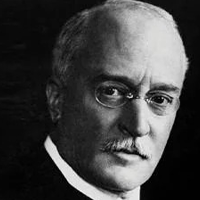Rudolf Diesel
Rudolf Christian Karl Diesel was a German engineer who invented the internal-combustion engine that bears his name. After studying the four-stroke internal combustion engines developed by Nikolaus Otto, Diesel conceived of an engine that would approach the thermodynamic limit established by Sadi Carnot in 1824. If the fuel in a cylinder could be expanded at constant pressure, it could get closer to Carnot’s limit. He patented the concept in 1892, while working at the firm of the refrigeration engineer Carl von Linde in Berlin. After boarding an English Channel steamer, he was found dead in the sea.
Diesel, the son of German-born parents, grew up in Paris until the family was deported to England in 1870 following the outbreak of the Franco-German War. From London Diesel was sent to Augsburg, his father’s native town, to continue his schooling. There and later at the Technical High School. in Munich he established a brilliant scholastic record in fields of engineering. At Munich he aassisted of the refrigeration engineer Carl von Linde, whose Paris firm he joined in 1880.

Rudolf Diesel
Date of Birth: 18 Mar 1858
Birth Place: Paris,France
Proffession: Enterpreneur,Engineer,Inventor
Nationality: French,German
Death: 29 September 1913


